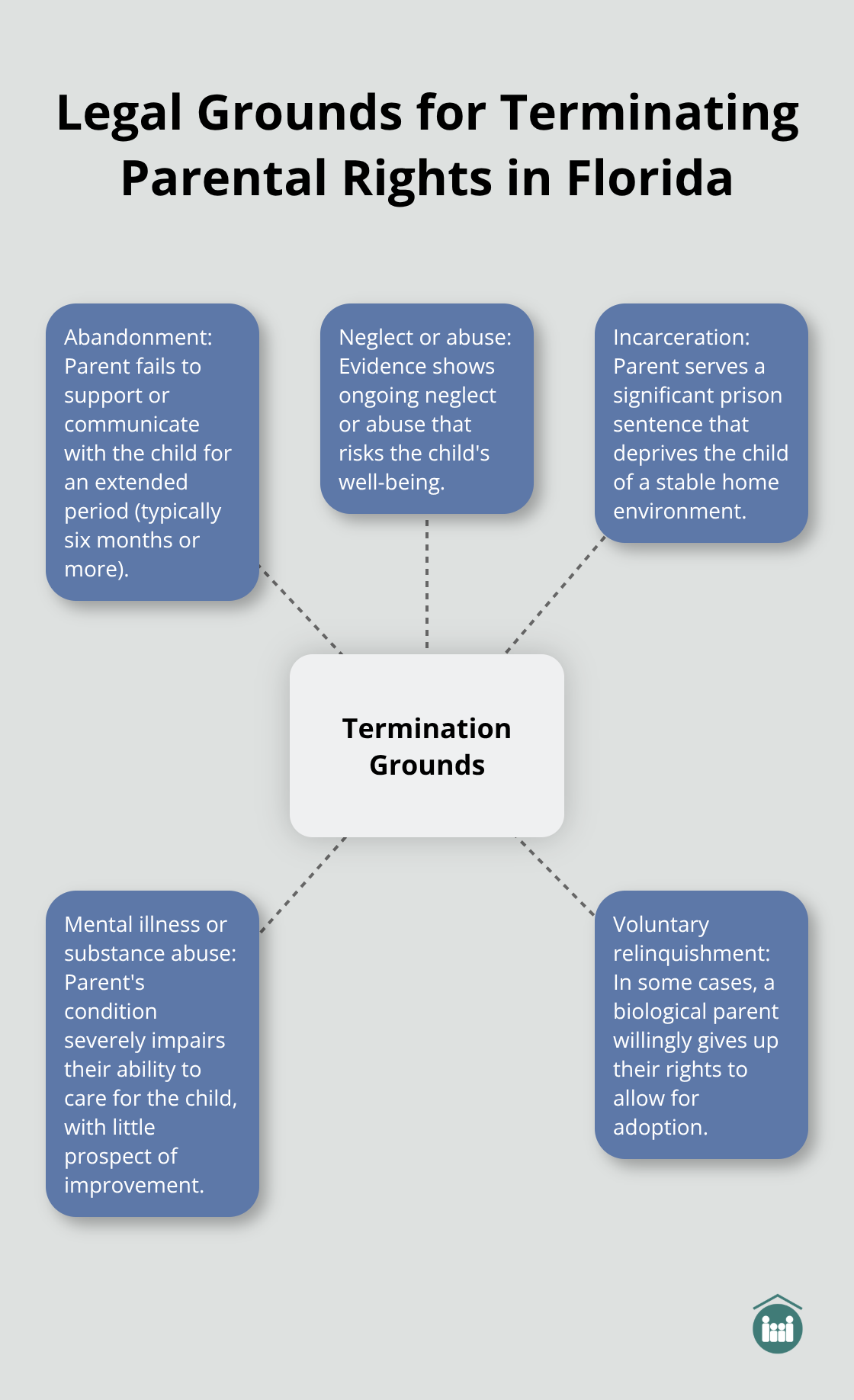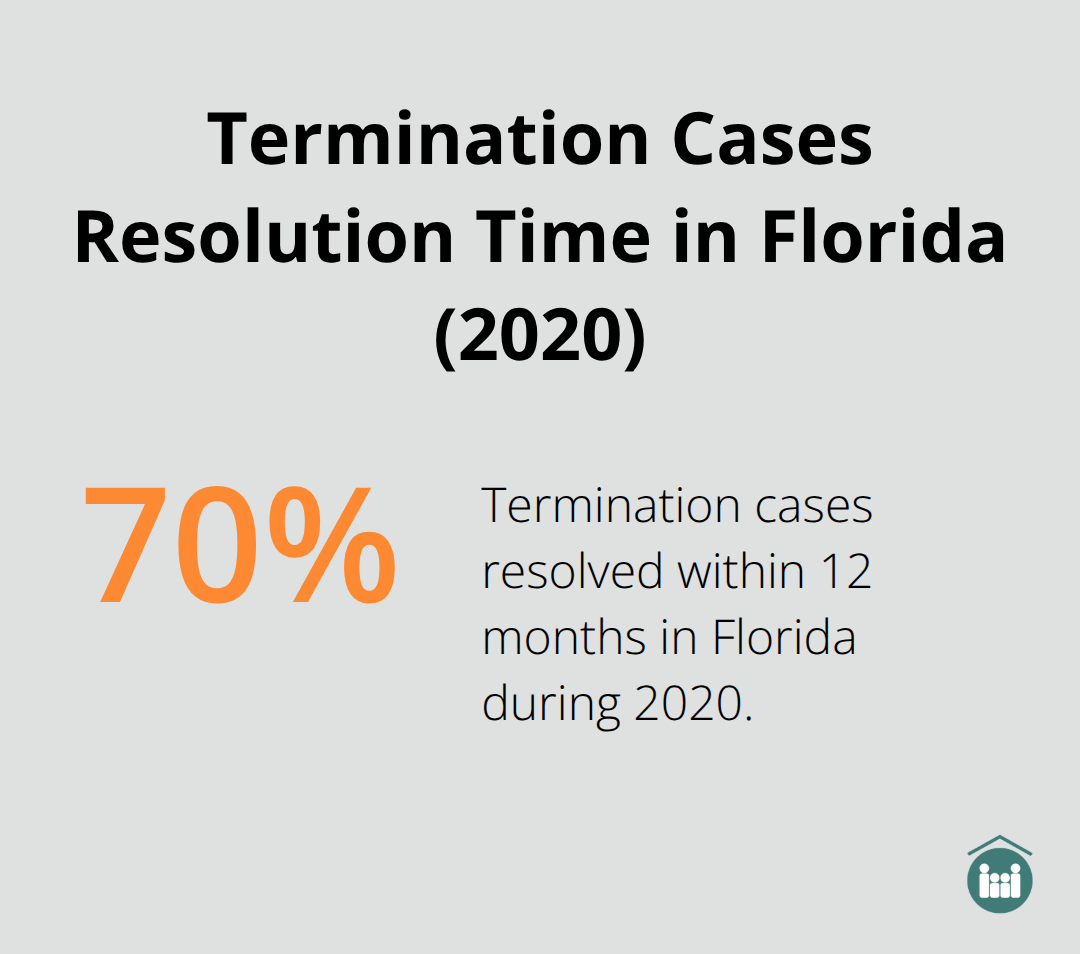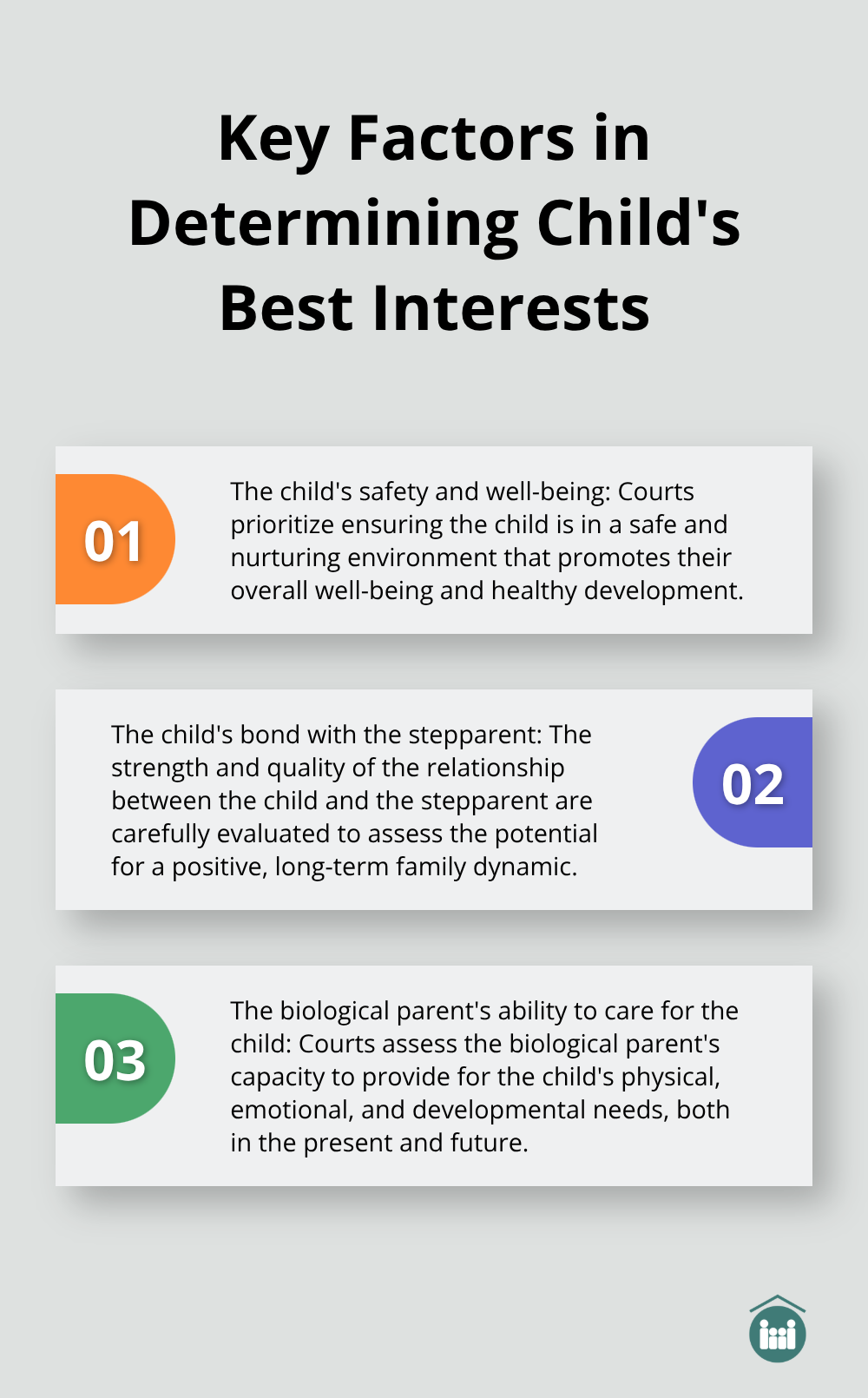
Stepparent adoption can be a life-changing process for families, but it often requires termination of parental rights for the non-custodial biological parent. This legal step is complex and emotionally charged, with significant implications for all parties involved.
At Juliana Gaita, P.A., we understand the intricacies of termination of parental rights for stepparent adoption in Florida. Our blog post will guide you through the process, legal considerations, and potential challenges you may face along the way.
What Is Termination of Parental Rights in Florida?
Definition and Purpose
Termination of parental rights in Florida is a legal process that ends the legal relationship between a parent and child permanently. This step often precedes stepparent adoption cases to pave the way for a new legal parent-child relationship. Florida law recognizes that a child can only have two legal parents at a time, which necessitates this process.
Legal Grounds for Termination
Florida Statute §63.064 outlines specific grounds for terminating parental rights:
- Abandonment: A parent fails to support or communicate with the child for an extended period (typically six months or more).
- Neglect or abuse: Evidence shows ongoing neglect or abuse that risks the child’s well-being.
- Incarceration: The parent serves a significant prison sentence that deprives the child of a stable home environment.
- Mental illness or substance abuse: The parent’s condition severely impairs their ability to care for the child, with little prospect of improvement.
- Voluntary relinquishment: In some cases, a biological parent willingly gives up their rights to allow for adoption.

The Best Interests Standard
Courts in Florida always prioritize the child’s best interests when considering termination of parental rights. This standard takes into account factors such as:
- The child’s emotional ties
- Safety considerations
- Stability of the proposed home environment
The Necessity in Stepparent Adoptions
In stepparent adoption cases, terminating the rights of the non-custodial biological parent is typically required. This ensures that the stepparent can fully assume the legal role of a parent.
Legal Complexities and Challenges
The process of terminating parental rights involves various legal complexities (e.g., filing petitions, serving notices, and attending court hearings). Each case presents unique challenges, and the outcomes can significantly impact all parties involved.
As we move forward to explore the specific steps involved in terminating parental rights for stepparent adoption, it’s important to understand that this process requires careful navigation of legal procedures and emotional considerations.
How Does the Termination Process Work?
Initiating the Process
The termination of parental rights for stepparent adoption in Florida begins with filing a petition in the circuit court. This document must outline specific reasons for seeking termination that align with Florida’s legal grounds. Florida Statute §63.087 requires the petition to be verified and include all facts supporting the termination request.
Notifying the Biological Parent
After filing the petition, the court must notify the biological parent whose rights are at stake. This step (known as service of process) follows strict legal procedures. If the parent’s location is unknown, a thorough search must occur and be documented. In some instances, the Florida Department of Children and Families allows for notification through local newspaper publication if the parent remains unlocated.
Court Proceedings and Evaluations
The court schedules hearings to review the case, allowing both parties to present evidence and testimony. Judges may order home studies or psychological evaluations to gather additional information about the family situation. These assessments help the court determine if termination serves the child’s best interests.
Possible Outcomes
The termination process can result in several outcomes:
- Voluntary Termination: The biological parent consents to terminate their rights, which simplifies the process.
- Involuntary Termination: The court may grant the petition without the biological parent’s consent if clear and convincing evidence supports the grounds for termination.
- Denial of Petition: The court will deny the petition if the evidence doesn’t support termination, and the biological parent will retain their rights.
- Contested Hearing: A trial-like hearing occurs when the biological parent opposes termination, potentially extending the process.
Statistics from the Florida Office of State Courts Administrator reveal that in 2020, about 70% of termination cases reached resolution within 12 months. However, contested cases often take significantly longer.

Legal Representation
An experienced family law attorney plays a vital role throughout this complex process. They ensure compliance with Florida adoption laws and provide comprehensive support to families as they navigate this challenging but potentially rewarding journey.
The next chapter will explore the legal considerations and challenges that often arise during the stepparent adoption process, providing valuable insights for families considering stepparent adoption.
Navigating Legal Hurdles in Termination Cases
Uncontested vs. Contested Cases
Termination of parental rights for stepparent adoption presents various legal challenges in Florida. These cases fall into two categories: uncontested and contested.
Uncontested cases occur when biological parents voluntarily relinquish their rights. These cases typically move through the court system faster. Florida court data shows that uncontested terminations resolve in an average of 90 days.
Contested cases, where biological parents oppose termination, prove more complex. These cases can take 6 to 18 months to resolve (depending on specific circumstances). The Florida Department of Children and Families reported that about 30% of termination cases in Florida were contested in 2020.
Protecting Biological Parents’ Rights
Florida law strongly safeguards biological parents’ rights. Courts require clear and convincing evidence to terminate these rights involuntarily. This high standard means that even in cases of alleged abandonment or neglect, termination isn’t guaranteed.
A 2019 Florida Supreme Court ruling emphasized that courts must exhaust all other options before terminating parental rights. This decision has made involuntary terminations more challenging, with success rates dropping from 65% to 52% in the following year.
Child’s Best Interests: The Ultimate Standard
While courts protect biological parents’ rights, the child’s best interests remain paramount. Florida Statute §39.810 outlines factors courts consider, including:
- The child’s safety and well-being
- The child’s bond with the stepparent
- The biological parent’s ability to care for the child

Courts often appoint a Guardian ad Litem to represent the child’s interests. These advocates influence about 70% of court decisions, according to a 2021 study by the Florida Guardian ad Litem Program.
Addressing Common Complications
Several issues frequently arise in termination cases:
- Locating absent parents: If a parent can’t be found, Florida law requires a diligent search. This process can delay proceedings by 2-3 months.
- Proving abandonment: Florida defines abandonment as a parent’s failure to communicate or provide support for six months. However, even minimal contact can negate abandonment claims.
- Overcoming substance abuse allegations: Parents accused of substance abuse may need to complete treatment programs, which can extend cases by 6-12 months.
- Interstate jurisdiction issues: When parents live in different states, determining proper jurisdiction can add complexity. The Uniform Child Custody Jurisdiction and Enforcement Act guides these situations, but resolution can take an additional 1-2 months.
Final Thoughts
Termination of parental rights for stepparent adoption transforms families and reshapes legal responsibilities. This process demands careful consideration and expert guidance to navigate Florida’s complex legal landscape successfully. Courts prioritize the child’s best interests, emphasizing the need for a strong case that demonstrates how the proposed adoption will benefit the child’s well-being.
Professional legal assistance proves essential for families considering stepparent adoption. An experienced adoption attorney provides invaluable support, ensures compliance with legal requirements, and prepares families for potential challenges. They help navigate each stage of the process, from filing the initial petition to addressing complications that may arise.
Juliana Gaita, P.A. understands the intricacies of Florida adoption law (including termination of parental rights). Our team offers the knowledge and support needed to guide families through every step of the adoption process. We strive to help families create loving, stable homes for children through successful stepparent adoptions.




